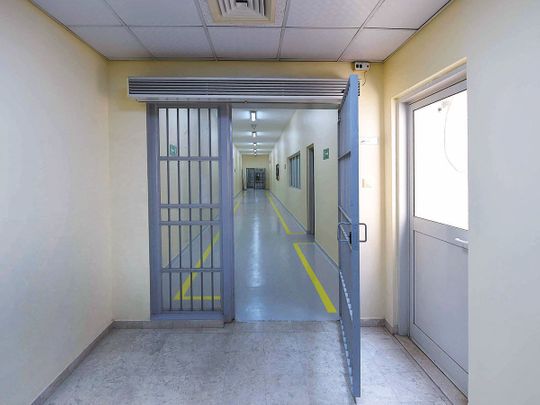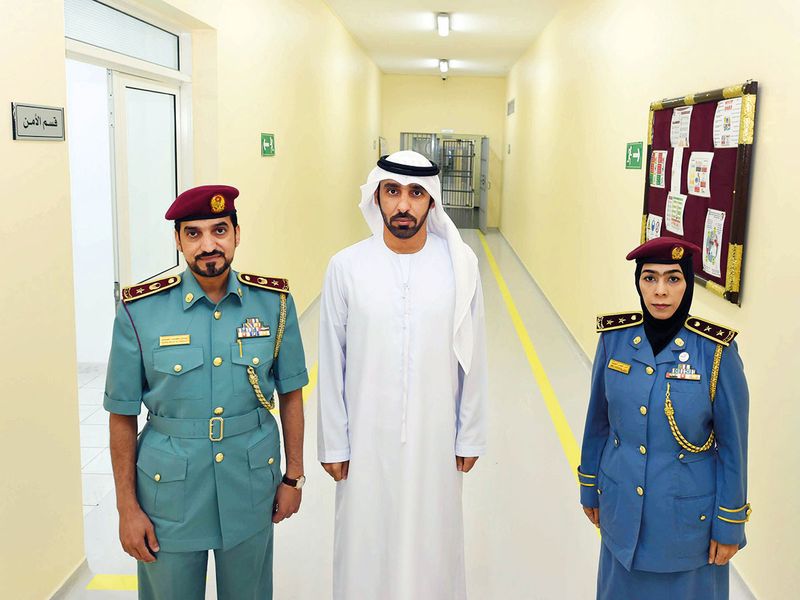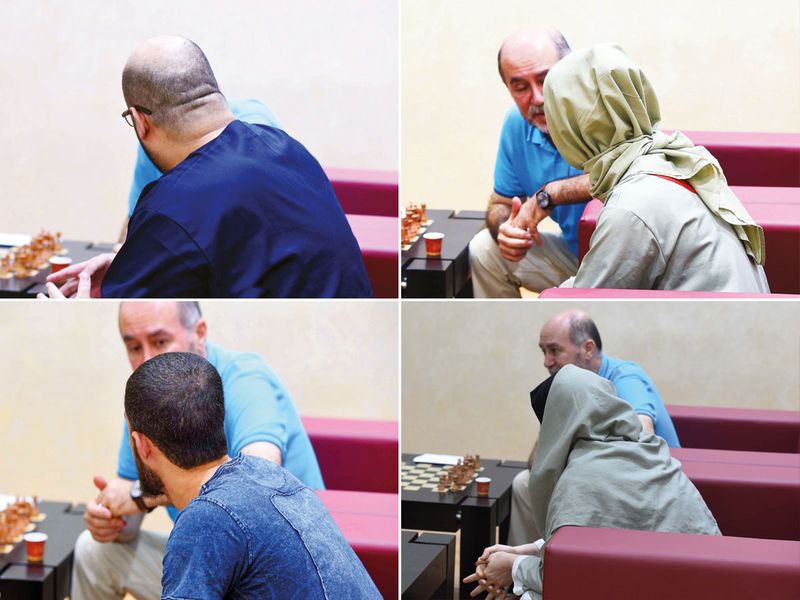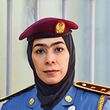
Ras Al Khaimah: Globally, prison is often described as a university for criminals, where inmates pick up habits that will only help them reoffend when they get back on the outside.
However, when Gulf News was given exclusive access to Ras Al Khaimah’s Correctional Facility recently, we discovered that this wasn’t the case, and the only lessons being taught were that of positive reformation.
Since opening a library at the correctional facility in 2011, the Sheikh Saud Bin Saqr Al Qasimi Foundation for Policy Research went on to launch courses in 2013 run by qualified instructors that have benefitted over 4,700 male and female inmates to date.
I don’t feel like I’m in a jail anymore; I feel like I’m genuinely in a facility for correction.
Run over two terms a year and offering up to four or five courses per term, including the likes of computer skills and small business management, inmates are now better equipped to make a real go of life when they get released.
“We support them as per their needs and distribute surveys to find out what [skills] they want to improve ahead of reintegration into society,” said Hanadi Mohammad, Innovation Manager at the Sheikh Saud Bin Saqr Al Qasimi Foundation for Policy Research.

“Our main focus is to reintegrate them back into the community and improve the community by providing them with skills that they can contribute with,” she added. “The foundation’s target is to build human capacity. Inmates look forward to a new life after prison but they lack the skills. We provide them with that, give them the chance, and they learn something that helps with their future.”
Visible improvement
The results have been clear to see, according to prison staff.
“Behaviour has improved and there are less problems among inmates because they have something to busy themselves with,” said Lieutenant Colonel Adnan Mohammad Al Hamadi, who oversees the rehabilitation programme at the prison, which holds up to 550-600 inmates, including both men and women across separate wings.
“Statistics show that the more education a prisoner gets, the less likely they will be to come back here,” he added.

The programmes are very important because if an inmate stays here without education, their behaviour will never change.
Lieutenant Amal Al Obad, who is the head of training for both men’s and women’s sections agreed.
“It’s our job to make sure inmates haven’t lost track of what was going on in the outside world while they were in prison,” she said. “They shouldn’t find it difficult to live outside and we should be helping them to do something with their lives so they find it easier on the outside when they leave.
“The goal of these courses is to help them find a new life and opportunity for the future after they have been released but they are more than just courses, they have effected and impacted upon everything in this prison.”
Popular courses
As well as the courses being open to all inmates, prison staff can also take part, and the latest additions in courses for first-aid and mental health first-aid have proved popular with up to 10 to 15 students in a class at any time and six to seven classes per term.
“Prisoners and staff look forward to these courses and always ask for them to be increased, added Al Hamadi. “The fact that it’s open to the staff as well as the inmates makes it beneficial to everyone.”

We support them as per their needs and distribute surveys to find out what [skills] they want to improve ahead of reintegration with society.
First Warrant Officer Saeed Al Mahbobi said: “The programmes are very important because if an inmate stays here without education, their behaviour will never change. It is impossible to offer a programme like this and not see a positive effect even if it’s five, 10 or 15 per cent, and adding only five per cent each time. If a prisoner only acquires half of what they are taught, it’s a great thing.
“We also have examples of former inmates who have continued their studies on the outside, who are now doing well, and we now have less people coming back here because of the courses’ clear, positive effect on behaviour,” he added. “Because they busy themselves with studies, they forget about their problems and their behaviour improves.”
It’s a win-win situation
Recalling a case of a doctor who was in prison for three years for financial offences, Al Obad said: “He took every course going and even became an instructor because he didn’t want a gap in his education when he left.
Fortunately, he had all the skills he needed to continue and is doing well [after leaving prison].
“We all know these courses would cost a lot of money outside so the fact that this is free thanks to the foundation, and that everyone benefits [from it], makes us feel very fortunate.”
Inmates speak

Inmates at Ras Al Khaimah Correctional Facility say it’s like being in ‘another world’ when they enter classes offered by the Sheikh Saud Bin Saqr Al Qasimi Foundation for Policy Research.
“Having my mind on something else takes me away from being in prison,” said Maryam*, a middle-aged inmate, who has been in prison for four years for a financial crime. “It was difficult before these courses, there was just a lot of time spent doing nothing, but now, we are all waiting for the next course to begin.”
Taking advantage of all the courses on offer, she said: “I knew nothing of computers or small business management before I got here but now I feel I can do something for myself.”

Behaviour has improved and there are less problems among inmates because they have something to busy themselves with.
Integrated alongside prison officers - who are also welcome to take courses - has also changed the dynamics of the jail, she added.
“Sitting together with staff and working together means everyone gets to know one another and those who were afraid of the group have started to feel relaxed and behave normally.
“I don’t feel like I’m in a jail anymore; I feel like I’m genuinely in a facility for correction.”
Aisha, a young inmate, eight months into a five-year sentence for drugs, agreed: “When I came here, I felt like a criminal but now, with help from the programme, I feel I can lead a normal life later on when I leave. Even mentally, I’m different now.

It’s our job to make sure inmates haven’t lost track of what was going on in the outside world... They shouldn’t find it difficult to live outside.
“We are all on good terms with each other, studying together, and are becoming friends,” she added. “It’s like a family, and I’m now relaxed. It makes me forget all my problems.”
Abdullah, who is in for three years for a financial crime, said: “Now I have new hopes and options when I get released. I feel there is a goal and a future. It’s like another world,” he says of the lessons and the promise they bring. “I couldn’t get courses like this on the outside, it’s so difficult,” he adds, referring to the time required to study and the costs involved. “Now I feel it will be easier to get on with life.”
Mohammad, who has been in jail for 10 months for theft, said: “It would be really difficult without [the courses]. We’ve gained more skills to help us continue on the outside and for sure, those who do these courses won’t come back here; they will have a better chance.”
*Names have been changed upon request










